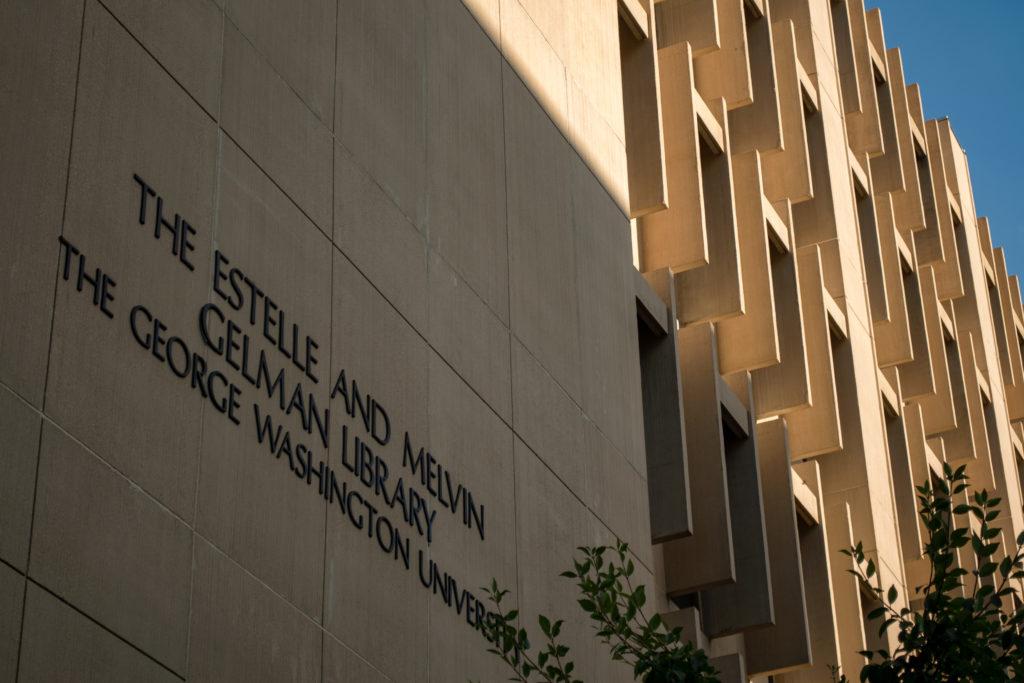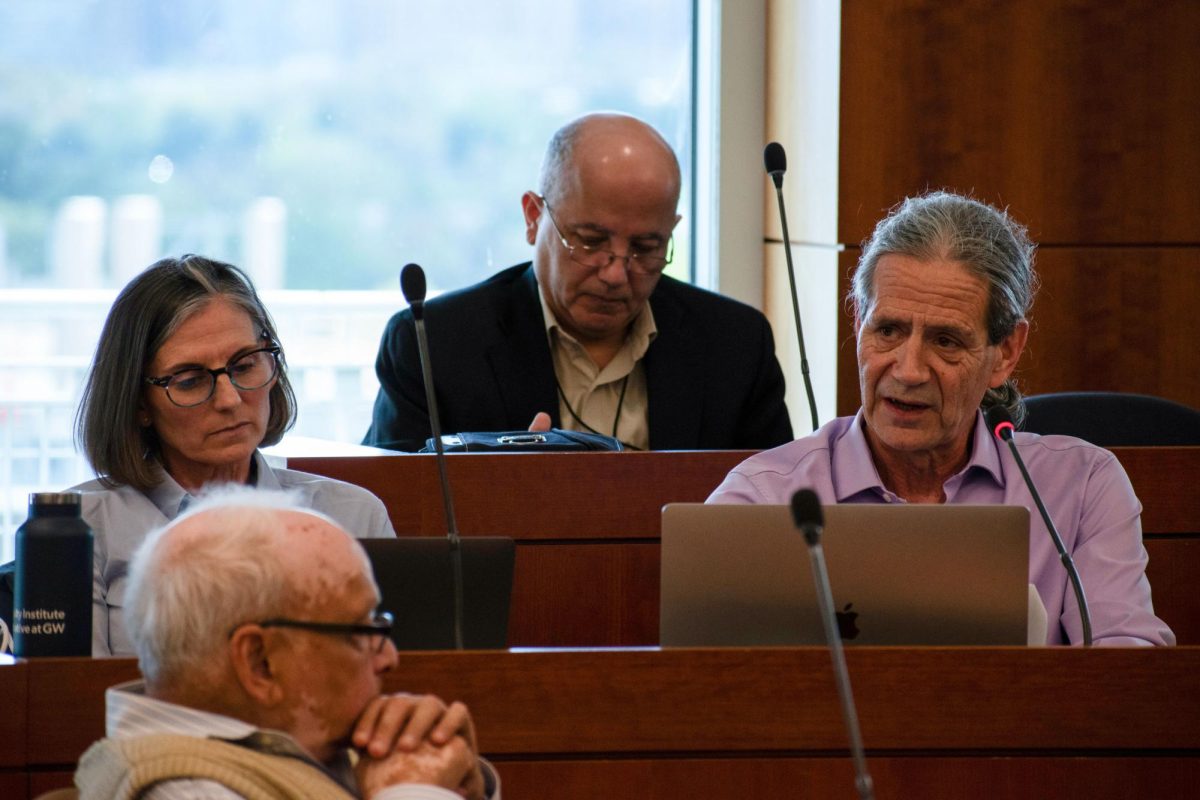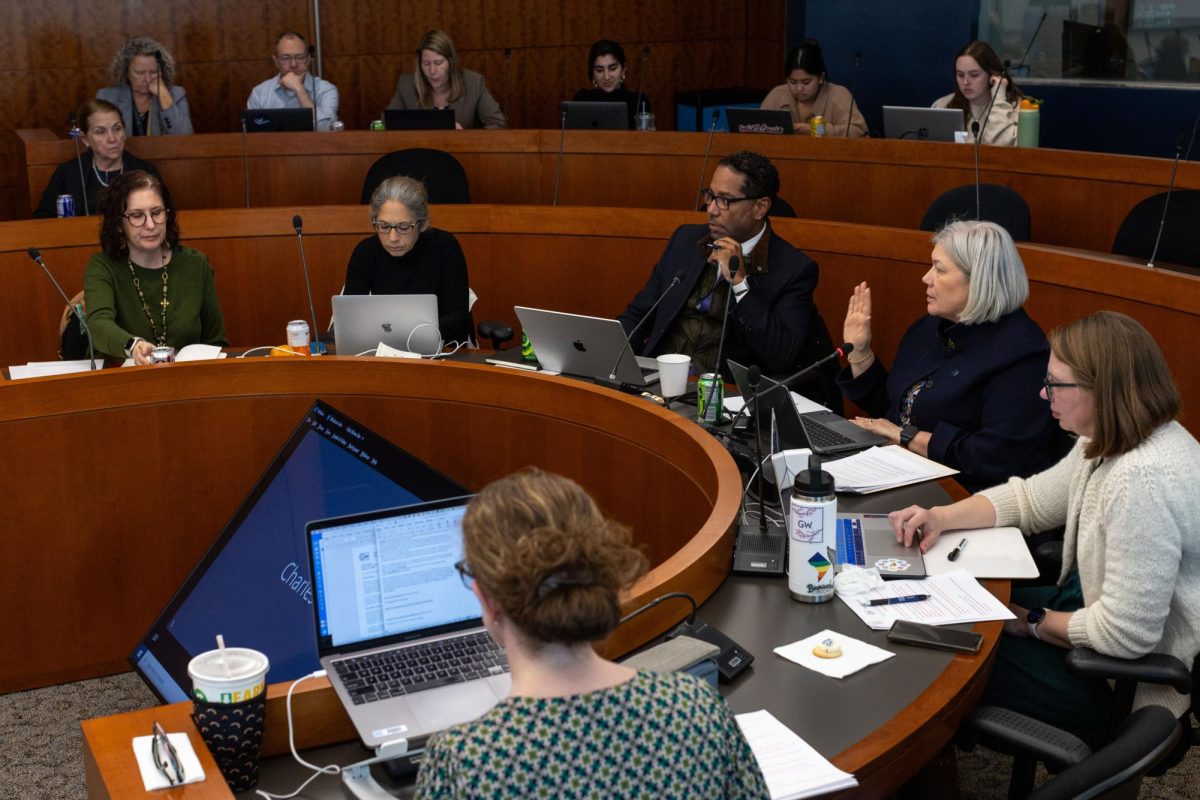Gelman Library will restore its 24-hour schedule at the end of this month after GW Libraries expanded service and resumed staff hires to fill vacancies for the University’s reopening.
GW Libraries officials said the financial effects of the COVID-19 pandemic, like University budget cuts, created challenges for campus libraries during the University’s transition to remote instruction last year. Professors on the Faculty Senate’s library committee said resolving ongoing staff shortages will allow GW Libraries to continue GW’s academic mission and meet the demands of students and faculty returning to campus without overwhelming employees.
Geneva Henry, the dean of Libraries and Academic Innovation, said GW Libraries staff served the needs of the University community throughout the virtual learning period “without a break” during the pandemic. She said the GW Libraries staff needed to make “difficult” choices about which services to continue because of budget mitigation measures, like the University’s hiring freeze and shared services reorganization that led staff to assume additional responsibilities.
“The libraries have tried to mitigate the effects of budget cuts on our patrons as much as possible, but you may need to be patient during this time while we are short staffed,” Henry said in an email. “The librarians and staff you encounter are helping many new students to learn about library services and assisting all of our patrons to understand our current COVID procedures.”
Faculty expressed concerns earlier this year about funding for GW Libraries staff and a sense of heightened burnout among employees following pandemic-induced budget cuts. Henry said GW Libraries has since filled some “critical” vacancies but added that about five previously filled positions aren’t funded for this year.
“We hope to have that funding restored for the next academic year so we can operate at full capacity,” she said.
Henry said Gelman and the Virginia Science and Technology Campus libraries have gradually increased the amount of furniture in the spaces and resumed service on more floors before fully reopening last month. She said staff at Eckles Library on the Mount Vernon Campus “worked hard” over the summer to prepare the service desk and patron areas for students before opening last week for the first time since last March.
Henry said GW Libraries will continue popular services that began during the pandemic, like virtual tutoring appointments and book retrieval and pickup. She said Gelman Library has also installed an audio-visual production studio and related equipment, including a virtual reality space and 3D and large-format printing for this fall.
“The libraries remain committed to offering our students the absolute best academic experience possible, and everyone in GW Libraries and Academic Innovation has stepped up to the plate to do just that,” she said.
Holly Dugan, the co-chair of the senate’s library committee and an associate professor of English, said GW Libraries is still trying to achieve pre-pandemic levels of hiring. She said previous budget mitigation efforts, like the 2016 staff layoffs caused by budget cuts, impacted GW Libraries far more than several other areas of the University because of the depth of staff eliminations.
“GW’s budget is complex, its hiring system is complex, but what I think what we’re really seeing is the effects over years of budget mitigation,” she said. “Really, one of the areas of the University in which we shouldn’t see that is the library system just because of how central it is to the pillars of the University in our academic mission.”
Officials have enacted hiring freezes, layoffs and pay cuts for top administrators as part of GW’s overall strategy to mitigate the financial impact from the coronavirus pandemic, which created a $180 million annual budget gap. The University has since unwound some of its budget mitigation policies this year along, resuming staff hirings this summer.
Dugan said GW Libraries is adding new positions, including some in the GW Instructional Core, that will meet the growing digital needs of campus and classes after more than a year of remote learning. She said filling staff vacancies, like catalogers, will provide librarians the support they need instead of diverting their resources and time to other departments like facilities or events planning.
“One of the things I’m concerned about is that need to backfill those positions in order to make sure that we have a fully funded library system and that we also have a fully funded staff that we need to maintain that academic mission in terms of our teaching excellence and in terms our research excellence as well,” she said.
Harald Griesshammer, a member of the library committee and a professor of physics, said the University’s hiring freeze prevented GW Libraries from recruiting new staff as intended prior to the pandemic. He said officials ultimately hired some librarians and a few staff members, like Academic Technologies employees, in the past year after the senate issued a resolution last summer calling on the “immediate need” to fill positions in GW Libraries.
“There is a huge backlog of positions that for one reason or another are not filled either because approval to advertise hasn’t gone forward or the position has not been recognized as being fillable and staffable,” he said.
Griesshammer said the challenges that GW Libraries faced during the pandemic, like staff shortages, have “substantially increased” this fall as the GW community returns to campus amid a backlog of remaining tasks, like requests for and purchases of new books.
“GW laid off a few people because they were not necessary during the pandemic or because the positions were deemed not essential,” he said. “And now that we are coming back, the work actually has not decreased, the work has actually substantially increased.”
Carly Neilson contributed reporting.








